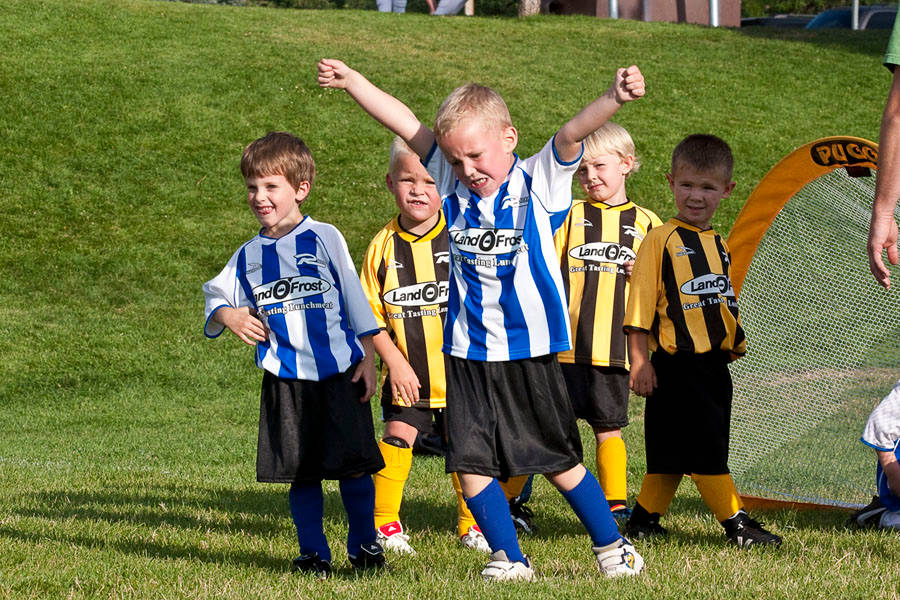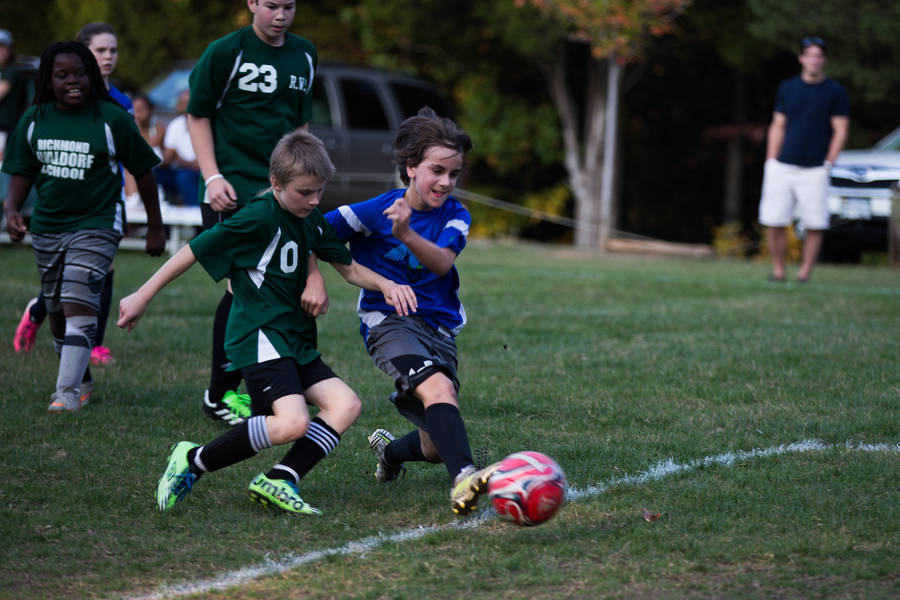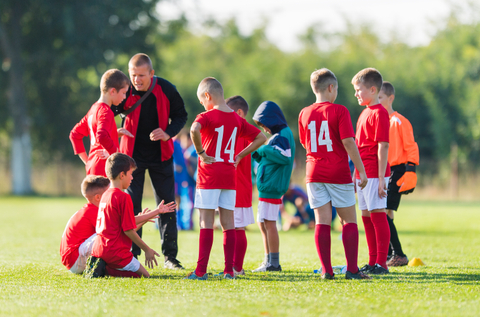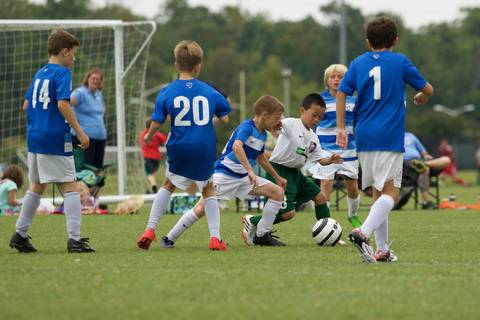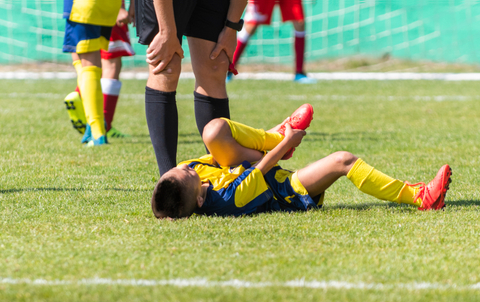How to Identify and Develop Natural Abilities in a Football Player
The making of a star football player is not a day’s journey. It is a marathon that requires consistent effect, constant development, and a combination of talent skills plus training.
Although not everyone can be a professional football player, who develops and how each player gets trained can determine their success in the sport. For instance, who could have imagined that the scrawny 12-year-old rejected from several academies would become a seven-time Ballon d’Or winner two decades later?
Yes, you guessed right! Many academies never thought Lionel Messi had the prospect of being the star football player he is today at the start of his career. However, he is a testament to tactical brilliance and a good nurturer who identifies and develops a young footballer’s abilities.
The level of physical activities and relaxation mode can also influence the player’s career path. Therefore, training, preparation, and familiarization with rules are fundamental in all areas: sports such as football, boxing, and tennis; business for implementing new models and approaches; leisure for using apps like Ontario app software and online games. Hence, the preparation stage is crucial for the future footballer in particular.
Steps to Identify and Develop a Footballer Player With Huge Prospects
Football is a complex sport that involves physical prowess, mental fortitude, and technical skills. While many of these can be developed, the first step toward getting it right for any footballer is for the right person to find and groom them.
Being the best footballer at a time doesn’t make you the right person to discover and nurture young football talents. Instead, you must have a keen eye, patience and perseverance, good communication skills, attention to detail, and mentorship skills. Crown those skills with your knowledge of the sport, passion, and scouting ability, and you are good to go. Below are some crucial steps to spot and nurture the next footballing star:
Observe the Players
The first step to discovering a player is to observe them to learn how good they are and what part of football they are good at. Observe how they play, interact, react under pressure, and make decisions. You can also watch them during training sessions or ask their coaches for opinions on their skills, including dribbling, passing, and shooting. You can also use scouts to identify raw talents in school teams and local leagues.
Conduct Physical Assessments
The next step is to physically confirm the player’s attributes. While observing may give an insight into a player’s skills, it does not represent certainty. So, you must carry out certain tests to analyse their proficiency. Below are key physical evaluation procedures:
-
1RM (One Repetition Maximum) Test
-
Isometric Strength Test
-
Yo-Yo Intermittent Recovery Test
-
Cooper Test
Psychological Evaluation Is Crucial
Football is as mental as it is physical, probably more mental. Therefore, you must assess the player’s cognitive ability to be resilient and handle pressure. Watching the player during tasking games and evaluating them psychologically can help you understand their mental fortitudes.
You should also check out how well and quickly they make decisions during a game, understand tactical nuances, and relate with other team members. Simulations and tactical plays are great ways to notice these in a controlled situation.
Explore Personalized Training Program
Now that you have identified these abilities, it is time to hone them to become better. Create training programs tailored to the players’ skills, strengths, and technical prowess. For instance, a natural striker should hone their shooting skills. Hone their strength and work on their weaknesses.
Harness Tactical Education
You must also develop your players' tactical skills in addition to their physical abilities. Teach them how to understand the game, including positioning, ball movement, and defensive strategies. To achieve this, use a combination of tactical board sessions, video analysis, and on-field instructions. Ensure the tactical training is also position-specific to maximise time and other resources. Regularly analyse the matches your player is involved in and those you watch of other players.
Mental Conditioning
Shore up your players' mental defences. Regularly provide them with psychologist help, developing their mental toughness, focus, and pressure-handling abilities. Build their confidence, enhance their goal-setting capabilities, and give them constant resilience training.
The Role of Technology in Developing the Natural Ability of a Football Player
Technology is a fortunate addition to today’s football industry. From scheduling games to broadcasting and analysing them, many people are conversant about their various uses. Thankfully, technology can also improve the process of observing and developing young talents. Below is a comprehensive table that analyses multiple technologies, their benefits and advantages, and how they can be applied.
|
Area of Technological Influence |
Impacts |
Technological Tools |
|---|---|---|
|
Performance Metrics |
Gives objective insights into speed, stamina, and agility |
GPS Trackers, Heart Rate Monitors |
|
Video Analysis |
Identifies strengths and weaknesses, pattern recognition |
Video Review Software, Game Footage Analysis Tools |
|
Simulated Training |
Allows practice of specific scenarios repeatedly |
VR Training Simulators, Oculus Rift, HTC Vive |
|
Enhances decision-making under simulated pressure |
Rezzil, Beyond Sports VR |
|
|
Provides immersive practice environments |
Be Your Best VR, EON Sports VR |
|
|
Injury Rehabilitation |
Maintains mental engagement during physical recovery |
VR Rehab Programs, NeuroTracker |
|
Facilitates gentle training activities during recovery |
VR Physical Therapy Programs |
Other Technological Tools
Other technological contributions and tools used to develop the skills of a football player are:
-
Biomechanics: Biomechanics is mainly used for motion analysis. With this technology, you can enhance players’ efficiency, improve their technical skills, and reduce injuries. Some of the major technological tools used for biomechanics include Simi Motion, Kinovea, Dartfish, and Motion Analysis software.
-
Sports Science: Sports science is another aspect of nurturing a player that technology can enhance. You can use tools like Zone Diet and MyFitnessPal to personalize diet plans and optimize the athlete’s nutrition for peak performance. Also, there are tools like Headspace and Calm for psychological assessment and mental health monitoring to track and enhance the player’s psychological well-being and performance.
-
Telematics: Technology is also essential for telematics. You can use Tracab and Catapult to track players’s positioning and movement. You can also use telematic tools like Sportscode and Hudl to analyse the game dynamics, ensuring optimal team formation and player movement.
Conclusion
Many things make up a footballer, including the physical, mental, and technical aspects. However, nurturing talent is as much about understanding the individual player as it is about applying effective training methods. With dedication and the right approach, any player’s innate abilities can be honed to achieve success on the football field. Whether you are an intending manager, football player, or even a fan, this article gives a broad insight into the making of a football star.




